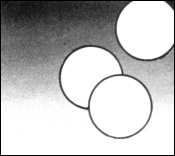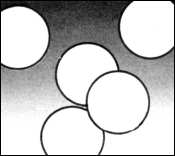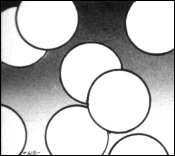| mind games |
Philip Joy looks at ways of making the simple game of Nim more interesting.

I include this month details of a game called Nim, which you can try and write yourselves, I shall include a version next month of my own. I also include portions of a letter which I received concerning ZX-81 chess games against a dedicated chess computer.
Nim is a very old game which has very easy rules. There are many versions but I shall use the shortest. It consists of a pile of matches/counters, of some random amount, say one to 100. Two players then take turns in taking a number of matches at a time, the object being to take the last match.
The number of matches a player can take can be from one to any suitable number; it is usually three. The problem happens when the computer becomes one of the players, because although it would be easy to have the computer take random numbers of matches, a thoughtful move is not so easy. There is a rule for this game which should ensure a win. You might like to try and find it before next month.

If you do so you might like to try a much more interesting program, that of three-pile Nim. You have three piles to choose from; on each move you can take any number of matches, from one to however many there are, from any one pile. The rule to ensure a win is now more complicated but I know of at least one and there could be others.
I now refer to a letter I received from David Egdoll of Glasgow. He has sent details of games played against versions of chess for the ZX-81 and other chess computers. He has bought the first Artic Chess program and his comment was: "I found it played fairly well at level three but unfortunately it took too long to make a move at that level".
True to the computer industry, a ZX Chess II appeared from Artic. Edgoll also bought a Micro-Gen version of chess. He says that he was not impressed with its standard.

He has included details of games played against Artic ZXchess II and the Voice Challenger, a dedicated chess computer. I was amazed at the results and I think you will be. The ZX-81 playing at level two and the VC at level three, the 81 won two out of two games. The 81 on level two against the VC on four, still won two games and had two draws. With the 81 on three and the VC on five to six, the 81 won four, had one draw and lost one. That mounts up to something stunning; out the 19 games played, the 81 had six wins, one loss, and three draws.
Those results are revealing, to say the least, I suppose it proves that the ZX-81 can, with the proper software, match and may exceed dedicated chess machines. Whether that would be so over a large number of games I am not sure but over the few it looks as if that might be true.
I should like to see a game of chess between a ZX-81 and a chess computer. If anyone would like to send one I will include it. Has anyone other comments on what has been revealed? I think that a great deal can be said about such results. Could it just be that the skill presented by the ZX-81 is superior to the Voice Challenger?
I should like you to direct all comments and your programs of Nim to Romford, Essex. Please send any comments about any type of mind game you have played or designed on the 81.
Voice Challenger is made by Fidelity Electronics. ZXchess and ZXchess II are produced by Artic Computing of Hull.